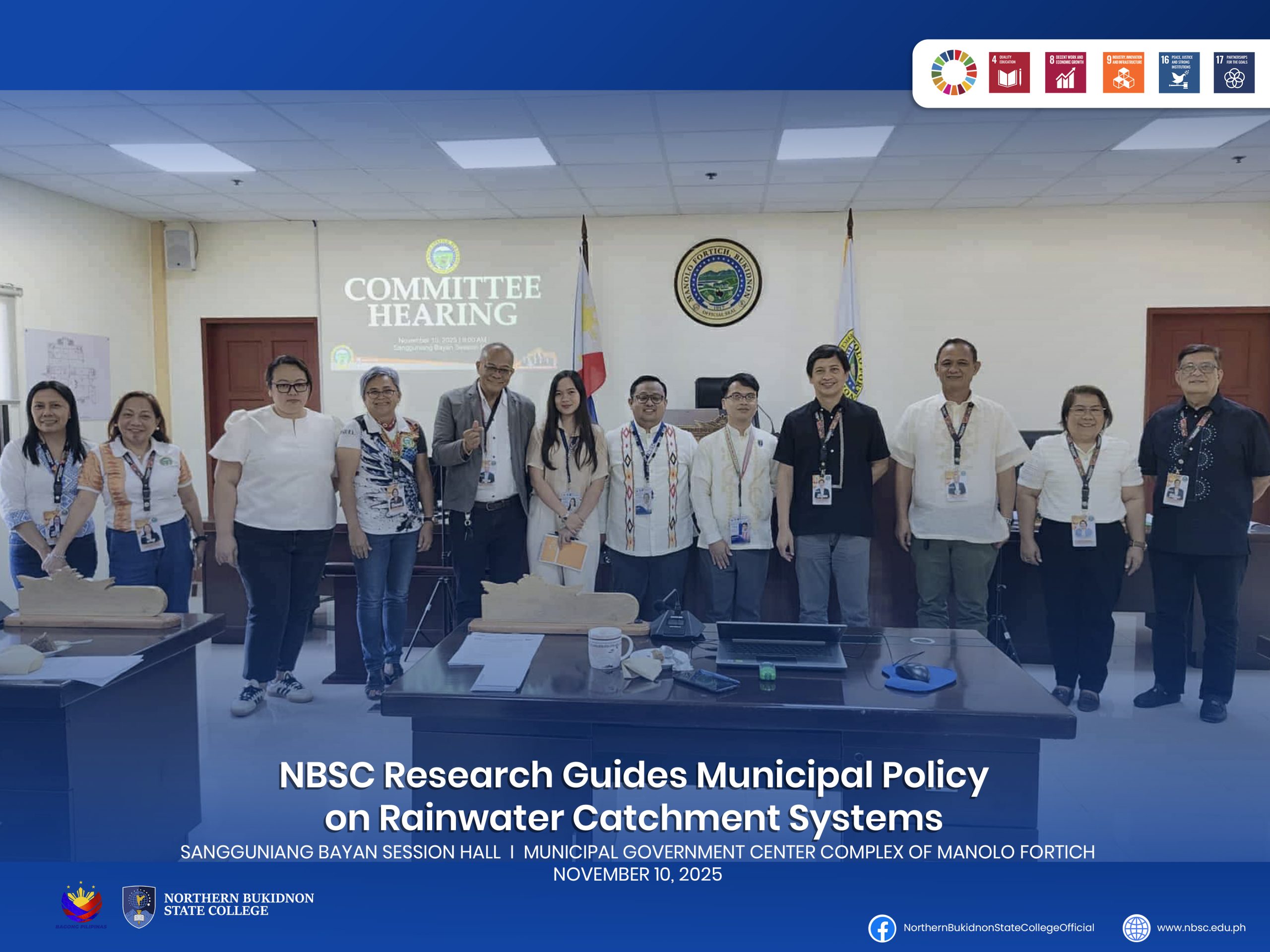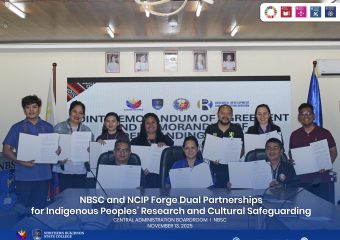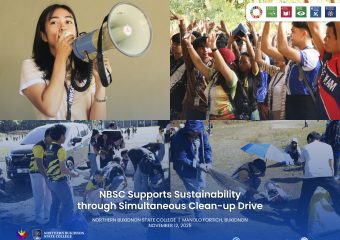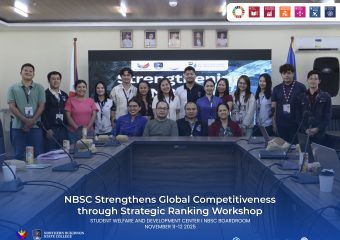NBSC RESEARCH GUIDES MUNICIPAL POLICY ON RAINWATER CATCHMENT SYSTEMS
Northern Bukidnon State College (NBSC) is providing evidence-based research to guide the municipal government of Manolo Fortich, Bukidnon in crafting a new ordinance for rainwater catchment systems (RWCS). Researchers from the college presented the findings of “Project Aquasphere: Integrating Rainwater Catchment Systems for Municipal Sustainability” to the Sangguniang Bayan’s Committee on Environment, chaired by Vice Mayor Reynaldo Bagayas Jr., during a recent hearing at the session hall on November 10, 2025.
The presentation was a response to Municipal Resolution No. 2023-629, authored by Hon. Rina E. Quiño, which requested NBSC to conduct a study on the feasibility of implementing RWCS in residential, commercial, agricultural, and industrial buildings across the municipality. The NBSC research team – composed of Project Leader Alven L. Gomez and Component Leaders Melvin I. Valmoria and Leah Mae S. Cuyno – attended the session.
Mr. Valmoria presented the study’s preliminary findings, offering insights on the current status and proposed next steps. A key finding indicated that while most respondents have not yet installed RWCS, there is a strong willingness to adopt such systems. Respondents also expressed support for programs promoting RWCS and a readiness to comply if installation becomes mandatory.
The primary challenges identified include maintenance, limited storage capacity, and water quality concerns. In response, the community suggested seminars, training, financial incentives, and startup support.
To encourage adoption, the NBSC team recommended several strategies, including broad awareness campaigns, financial incentives, integrating RWCS requirements into ordinances and building codes, clear maintenance guidelines, piloting cost-effective RWCS designs, and community-based installations in public areas such as schools, markets, and barangay halls.
The Committee on Environment commended the NBSC team and offered recommendations for further study. These include determining the ideal volume of rainwater for households to store, exploring safe storage methods to prevent contamination and mosquito breeding, and identifying alternative uses for rainwater. The committee also encouraged the development of low-cost designs, the documentation of indigenous knowledge on water use, and alignment with the Philippine Green Building Code.
The presentation underscores the college’s significant role in supporting the local government with data-driven insights for effective policymaking. This collaboration demonstrates NBSC’s commitment to developing sustainable, research-grounded solutions and fostering active community engagement in Northern Mindanao.





